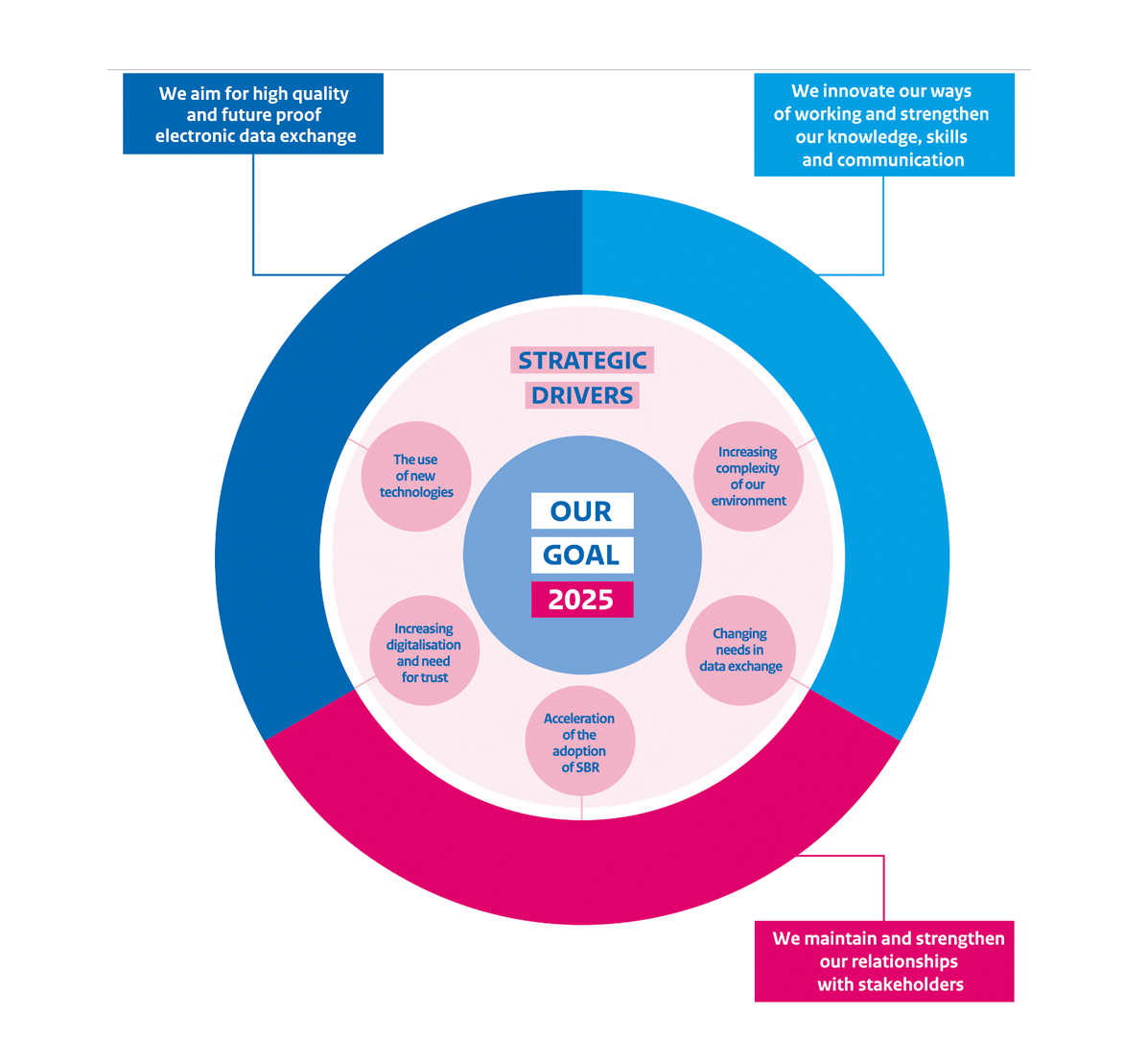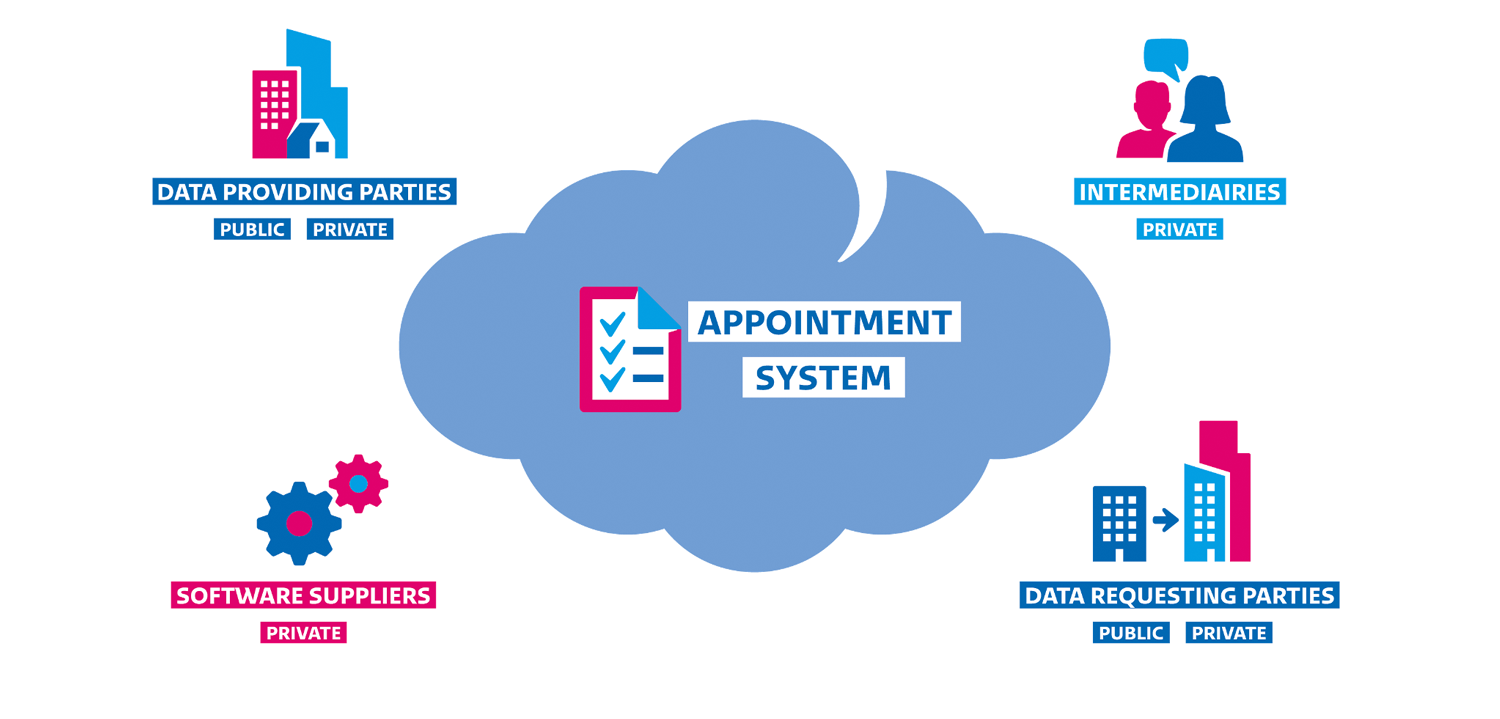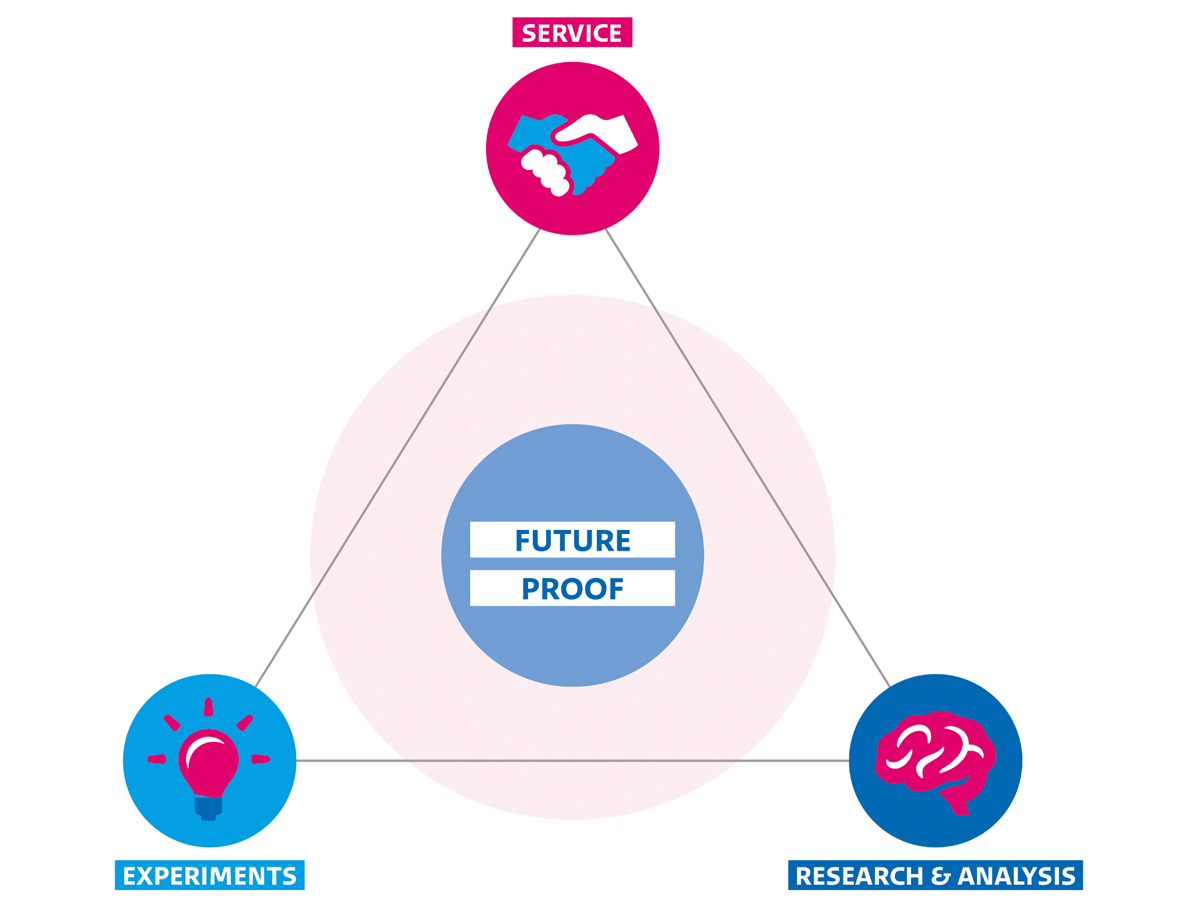This English version of the SBR Roadmap 2020-2025 does not contain all related actions nor appendixes. The Roadmap is being reviewed (and revised if necessary) yearly.
Our goal
In 2025 we want to increase the number of Dutch organisations that are using SBR to electronically exchange their data safely, swiftly, easily and flawlessly in a structured and standardised manner.
Our value proposition
- Our standards provide for unambiguous, structured, transparent, available, comparable, reusable and relevant data thanks to their open nature; can be used as building blocks; standardize system-to-system exchange and therefore reduce the number of manual or paper data transactions; are a proven concept and build trust among its users.
- Our network (our public-private cooperation) is a broad coalition of stakeholders making agreements based on consensus; is aimed to (international) collaboration with other organisations and initiatives.
- Our approach is aimed at a future proof system of agreements with activities that contribute to our goal;
- responds to the needs of stakeholders; clarifies the added value of SBR per target group; uses (new) technologies.
Observations
We adapt ourselves to the environment and the needs of stakeholders. The most important observations that impact our actions in the timeframe 2020-2025 are the following:
Increasing digitalisation and need for trust
- The world digitalises rapidly. The Netherlands is one of the digital frontrunners and wish to maintain that position.
- Digitalisation offers opportunities but also some threats.
- The first important pandemic of the 21st century, the Covid-19 crisis of 2020, makes the deployment of electronic data exchange even more urgent.
- We rely and depend more and more on digital technologies and data flows.
- Due to for example increasing data volumes it will become increasingly difficult to check manually if digital information is reliable and if the technology works properly.
- Being digitally transparent about the reliability of processes, data and technology is crucial to obtain and maintain trust of users.
The use of new technologies
- An increasing number of new technologies, such as artificial intelligence and blockchain, are available for a growing number of purposes as well as developments in the field of identification, authentication and authorisation.
- These technologies and developments are more often being implemented and applied in different domains.
Increasing complexity of our environment
- The complexity of chains and of technology requires strong communication and visibility of the organisation.
- Sharing and developing knowledge contributes to a better understanding of the coherency of SBR.
- For the adoption of complex SBR building blocks, organisations need more assistance and support.
- In the past years the SBR community and governance have extended to new domains and therefore have become more complex.
- There is a high number of SBR meetings where participants do not always have the needed mandate to take part in the decision making process.
Changing needs in data exchange
- Organisations have higher demands with regard to the actuality of data and the frequency of the exchange thereof.
- Citizens and organisations want to be empowered on how they act and interact and of the data they provide.
- The value of data(-definitions) increases as they can be reused more often.
- Data are exchanged in a growing variety of ways. Organisations will be searching for solutions in that area.
Acceleration of the adoption of SBR
Organisations need to see the added value before they start to implement. This is especially true for areas that are being further expanded (annual reporting, use of tax data) or developed (e.g. sustainability, healthcare, real estate, finance).
Strategic goals
Given the observations of our environment, we set ourselves three strategic goals and the related actions should enable us to reach our goal.
Strategic goals:
- We aim for high quality and future proof electronic data exchange.
- We innovate our ways of working and strengthen our knowledge, skills and communication.
- We maintain and strengthen our relationships with stakeholders.
Graphical overview of our strategy

Figure 1 – Graphical overview of our strategy
Our environment
The SBR public-private cooperation operates in a context visualised below:

Figure 2 – Actors in the SBR information chains
In order to fulfil their (legal) task, both public and private organisations request data from different organisations. The latter provide these data and are therefore referred to as data providing parties.
Intermediaries such as accountants, tax consultants and surveyors provide, control, validate or use data, on behalf of entrepreneurs or citizens. Intermediaries can also draw up reports.
Intermediaries can also make the work of data providers transparent in their chains, for example by adding an auditor's opinion and report.
Software suppliers will make sure that data and reports are collected, managed, composed, drawn up, validated and exchanged, received and used according to SBR agreements.
Data requesting parties are for example the business register, the housing corporation authority , the ministry of Internal Affairs and Kingdom Relations , the Education Executive Agency , financial service providers, the tax authorities, Statistics Netherlands and the Dutch Authority for the Financial Markets .
Logius, the digital government service of the Netherlands, and SBR Nexus (representing banks and insurers) are shared service centers (SSC) that support above mentioned actors in different chains. They do that by supporting and participating in the governances. They maintain the gateways for SBR communication with infrastructures called Digipoort and Bancaire Infrastructurele Voorziening (BIV).
The participating organisations are part of (administrative) chains: annual reports, tax messages, statistical data, credit reports, survey reports and forecast information.
On how to keep SBR future-proof
The PPC has its roots in the early 21st century. In order to continue to be relevant in an ever faster developing technological environment, it is important to innovate continuously.
Participants in the PPC can introduce new developments and technologies in the different expert groups.
SBR Renewal/Innovation
Currently Logius accommodates the section SBR Renewal. This was initiated by the NL DIGIbeter program of the Ministry of Internal Affairs in order to experiment, research and learn. SBR Renewal focuses on the following questions:
- How can we make SBR more agile?
- How can we make SBR more accessible?
- How can we encourage innovation and involve market parties?
To answer these questions the PPC identified 3 related focus areas: Research and Analysis, Experiments, Service.

Figure 3 – Focus areas for SBR Renewal
Research and Analysis
The evolution of SBR requires continuous knowledge development. Today's research is the basis for future SBR services. In the subproject Research and Analysis questions related to knowledge are being collected and answered with the aim to realize the goals of SBR Renewal.
The main activities of this subproject focus on the following questions:
- How can we exchange qualified data in another manner?
- How can SBR help to create reliable algorithms?
- How can we make sure that we continuously develop ourselves when it comes to sharing data?
Experiments
Participants to the PPC are asked for input for experiments that contribute to the aim of keeping our framework future-proof. These experiments are prioritized and being tested by a collaboration of clients and software developers. The results are broadly shared and considered as input for further development of SBR. The main activities of the subproject Experiments are focused on the following:
- To test data sharing of the future: SBR as part of a data ecosystem. In this context SBR members such as the tax authorities and software developers will jointly test how data exchange can be optimized using the newest technological developments.
- To test how to adopt SBR more easily: Test how the process of connection to SBR can be made more easily from the point of view of the client.
- To facilitate the process of co-creation: Retrieve questions throughout the entire SBR community, appoint a problem owner and execute experiments in collaboration with the problem owner and concerned chain partners. As an example, a backlog session for which all SBR participants were invited took place on the 20th of February 2020 and led to a backlog of experiments.
Service
Within the subproject Service, the relation with potential data requesting parties is being maintained. The main activities are aimed at the following:
- Sustainability: It is expected that there will be more and more attention and requirements for reporting on sustainability in the future. Commissioned by several ministries, an external office investigates how impact is registered and which next steps should be taken in order to have unambiguously and structured reports in the area of Sustainable Development Goals (SDGs). SBR is also, together with the ministry of Finance and the financial sector, examining in which way sustainability and emission data can be exchanged in view of the ambitions set in the climate agreement.
- Flexibility and accessibility: To test, in collaboration with (potential) data requesting parties and the subproject Experiments, how to facilitate the access to SBR with a shorter lead time than has been the case up to date. This should also make SBR more interesting for parties who exchange limited data volumes.
- Demand-driven service development: Based on input received from several parties SBR Renewal works on additional services that can be tested with potential data requesting parties. As an example, a taxonomy pressure cooker took place in which SBR Renewal and the ministry of Finance tested the possibility to deliver a workable taxonomy in just a few sessions.
International XBRL developments
At the international level the reporting community is working intensively on the extension and optimization of XBRL. XBRL is an open international standard for digital reporting. XBRL enables the collection and exchange of data from public organizations and businesses. In order to exchange SBR-reports the shared service center Digipoort as well as the taxonomy NT, which is based on XBRL, are being used. The standard describes the ‘grammar’ of reports. In the Netherlands XBRL is being used for tax returns, annual and credit reports.
Since its conception, the standard has been extended with several functionalities relevant for SBR, such as formulas, dimensions and Inline XBRL (iXBRL; XBRL embedded in an HTML file). Current developments contain amongst other things renewed calculation structures, CSV and JSON variants. XBRL Nederland contributes to and keeps an eye on XBRL developments and related facilities. Different SBR parties participate in working groups of XBRL International.
The representation of software developers in SBR involves and informs its followers early in the process. This enables them to prepare for new developments.
The aforementioned initiatives are put forth by individual participants of SBR and they contribute to a future-proof SBR. From now on the PPC will give substance to collective and structural innovation with the aim to create a common direction and development that offers perspective for its participants. In the end, that is what will guarantee a future-proof character of SBR.